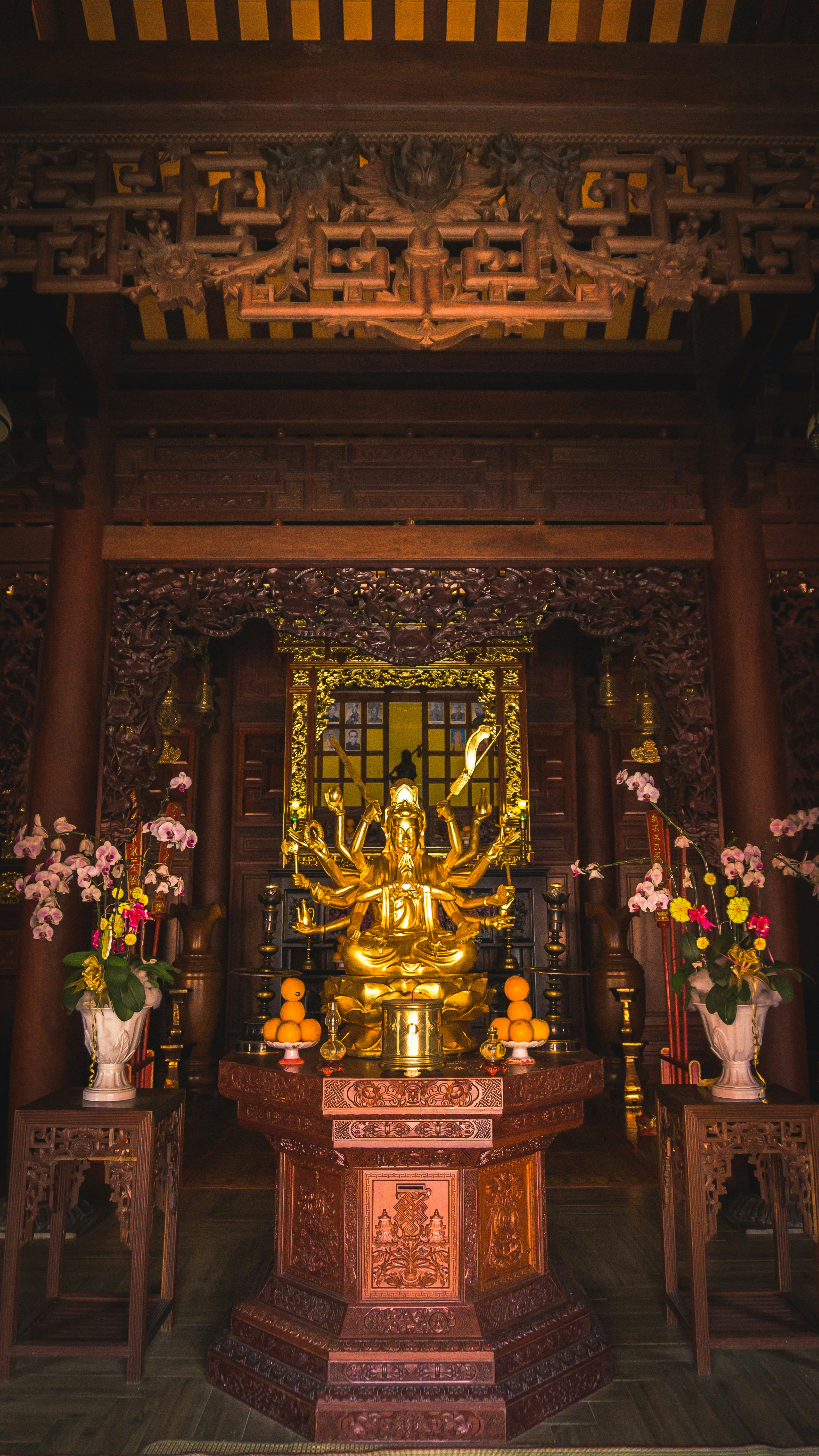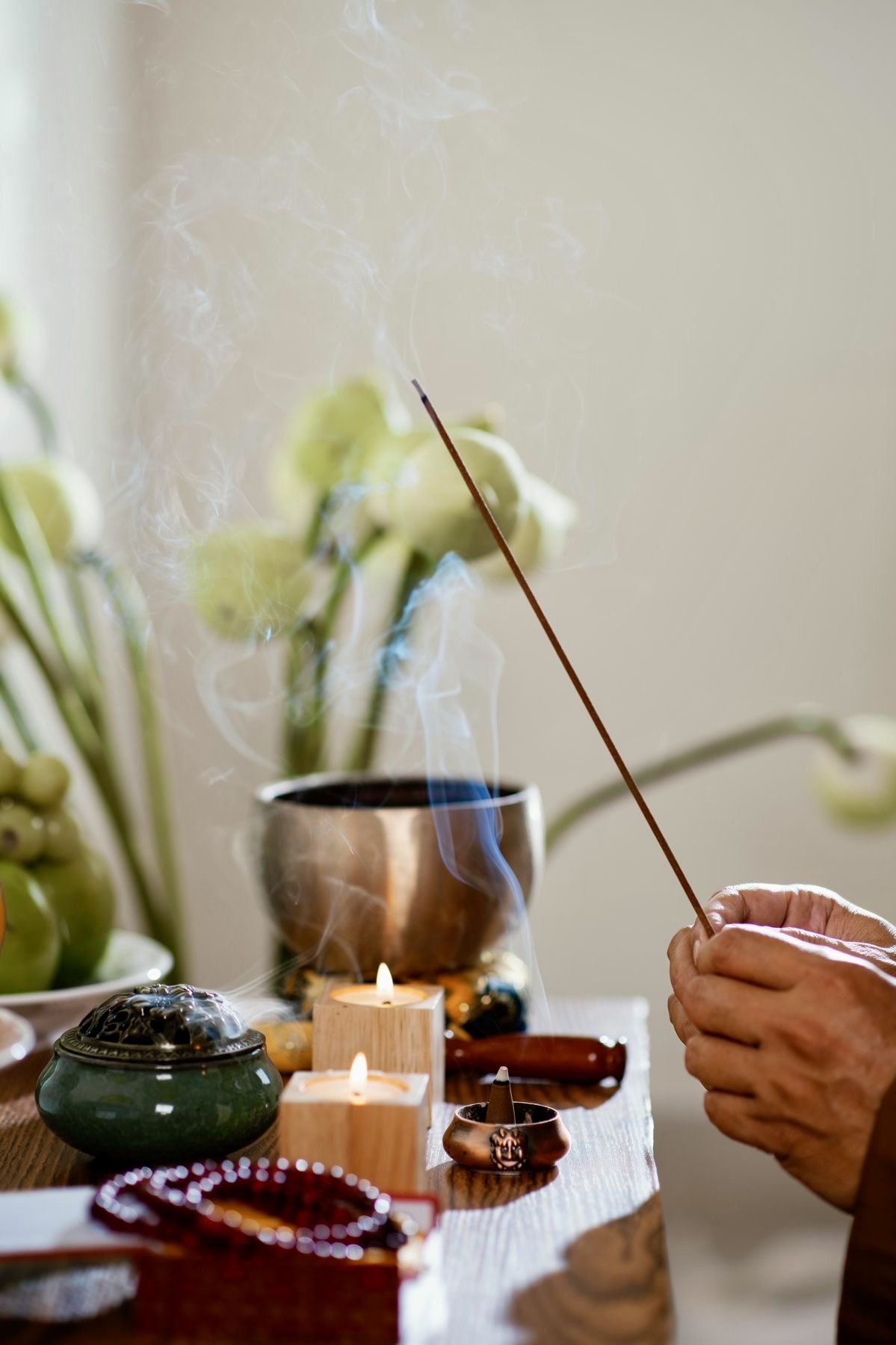
This golden altar honors deities and ancestors, blending Buddhism and folk beliefs. Each offering, from fruit to flowers, reflects respect and a wish for protection, prosperity, and harmony between the living and the spirit world.

Your wishlist is empty.
In Vietnam, worship is more than ritual—it's a living dialogue between the past, present, and unseen forces that shape daily life. While many recognize the ancestral altar as a household fixture, few realize the spiritual network extends far beyond family ties.
Ancestor worship is the cornerstone of Vietnamese spirituality. Nearly every household maintains an altar, offering incense, food, and prayers to deceased relatives. These acts aren't mere tradition—they're expressions of filial piety, ensuring that the bonds of kinship endure beyond death. Significant dates like death anniversaries and the Lunar New Year (Tết) see families gathering to honor their ancestors, seeking guidance and blessings for the year ahead.
Beyond the family, Vietnamese folk religion venerates a pantheon of deities known as "thần." These spirits govern various aspects of the natural and social world. In the South, it's common to see small altars dedicated to Ông Địa (the Earth God) and Thần Tài (the God of Wealth) in homes and businesses, reflecting a blend of indigenous beliefs and Chinese influence.
Each village often honors a Thành Hoàng, a tutelary deity believed to protect the community. These figures can be historical heroes, founders of the village, or spirits associated with local landmarks.

This golden altar honors deities and ancestors, blending Buddhism and folk beliefs. Each offering, from fruit to flowers, reflects respect and a wish for protection, prosperity, and harmony between the living and the spirit world.

Đạo Mẫu, or the Mother Goddess religion, is a uniquely Vietnamese spiritual practice that venerates female deities governing the heavens, earth, water, and mountains. Central to this tradition is the ritual of hầu bóng, where mediums embody these goddesses through elaborate ceremonies involving music, dance, and costume.
Vietnamese spirituality is characterized by its syncretism. Confucianism, Buddhism, Taoism, and indigenous animism intertwine, creating a rich tapestry of beliefs. This cultural additivity allows for a flexible and inclusive approach to worship, where multiple deities and practices coexist harmoniously.
Despite modernization, these spiritual practices remain integral to Vietnamese life. From urban apartments to rural villages, altars and rituals continue to connect individuals to their ancestors, community, and the natural world. Understanding this spiritual landscape offers insight into the values and traditions that have shaped Vietnam for generations.